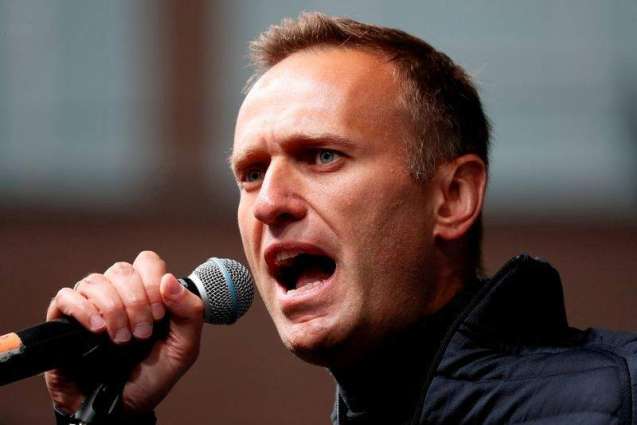German Government Spokesman Steffen Seibert has refused to specify what items allegedly having traces of a substance from the Novichok group, apart from a water bottle, were part of the case involving Russian opposition figure Alexey Navalny
BERLIN (Pakistan Point News / Sputnik - 27th November, 2020) German Government Spokesman Steffen Seibert has refused to specify what items allegedly having traces of a substance from the Novichok group, apart from a water bottle, were part of the case involving Russian opposition figure Alexey Navalny.
Navalny was hospitalized in Russia in August. His supporters suspected that he had been poisoned by a contaminated bottle of water, which was in the blogger's hotel suite. Navalny's associates said that they transported one of the bottles to Germany, where he had undergone treatment. In early October, the Russian Interior Ministry said that the bottle submitted to the German laboratory was bought by one of Navalny's allies from a wending machine in the Novosibirsk airport's secure area. On Wednesday, the German government admitted that there were other items, besides a bottle of water, with traces of a substance from the Novichok group in the Navalny case, replying to the request made by the right-wing Alternative for Germany.
"A written response has been given to this request, I have nothing to add to our current statements on this issue," Seibert said at a briefing on Friday.
Navalny was transported to the Russian city of Omsk after he lost consciousness during a domestic flight to Moscow. Though the opposition figure's team suspected he had been poisoned, Russian specialists did not find any traces of toxins in Navalny's blood and stated that the reason for his poor condition was a metabolic disorder. Several days later, Navalny was transported to Germany for treatment in the Charite clinic in Berlin. On September 14, German Chancellor Angela Merkel said that German, French and Swedish laboratories carried out independent research and found out that Navalny was poisoned by a nerve agent from the Novichok family of toxins.
Following Navalny's illness, the European Union imposed sanctions on six Russian officials it suspected of being involved in the incident. Russia has repeatedly denied any involvement in the alleged poisoning of the opposition activist. Moscow also insisted that Berlin had yet to reply to requests for Russia's legal assistance regarding Navalny's case.




